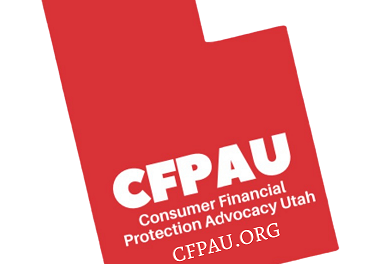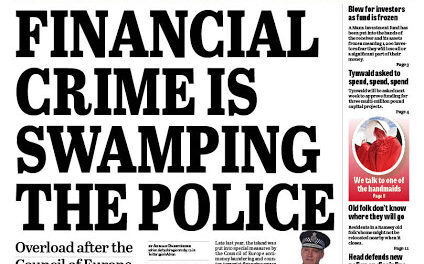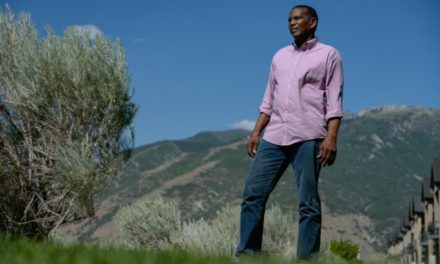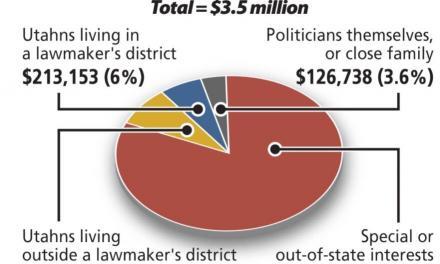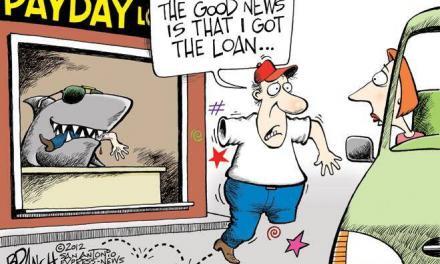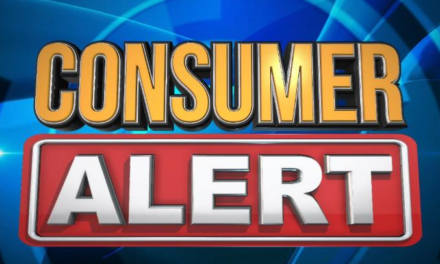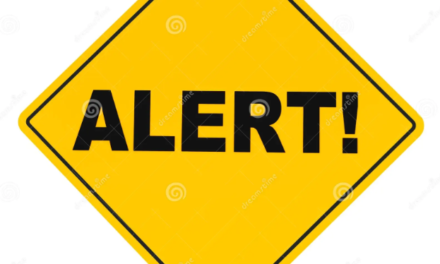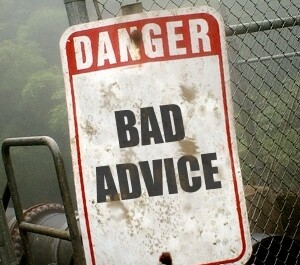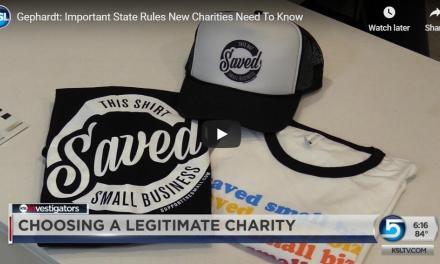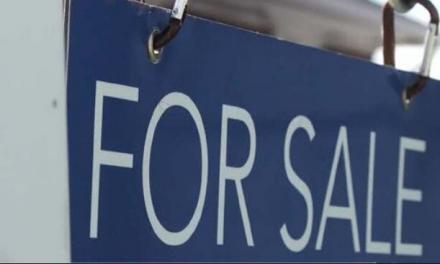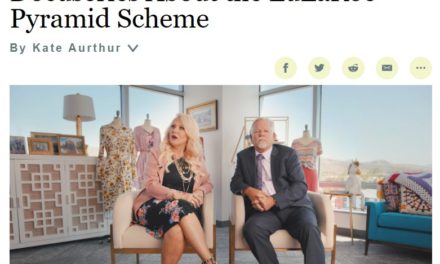
Utah State Bar: Lawyer Complaints & Discipline
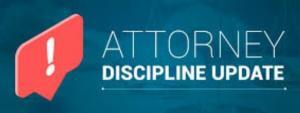
Utah State Bar Discipline
All the bad lawyer jokes aside, many of us have had contact with or know someone who has had contact with an unethical lawyer at one time. Lawyers enjoy exceptional advantages and power in our society and this power can often be abused. Because of this, State Bars have been given authority by the legislatures to regulate and discipline lawyers when their behavior crosses the line into unethical conduct and more. Lawyers may receive minor penalties up to even losing their license to practice law in your state.
Such conduct can range from illegal behavior to ethical violations. It may be sending you a scary and threatening letter of a lawsuit (just a nuisance suit they know they could not win), if you don’t do what they ask. But they know the threat poses a large expense and much time involved to defend yourself is all lost, even if you win. So their experience is that most people will do some action to benefit their clients, and it often works. Yet is this is not ethical.
One extreme example of this is the case of Michael John Avenatti, best known for his representation of adult-film actress Stormy Daniels in her lawsuits against President Donald Trump, and Avenatti also announced he was going to run for President. There is a fine line for lawyers between threatening lawsuits and extortion. Avenatti was convicted of attempting to extort over $20 million from Nike. He has been charged in two separate indictments with embezzling $300,000 from Daniels, and with tax fraud and stealing several million dollars from other clients.
It may be other unethical actions such as overbilling, which is quite prevalent. I was a victim of double billing. I caught it and let the Utah lawyer know I would take it to the Utah State Bar, they corrected the double billing issue that same week, rather than risk exposure to the State Bar!
Knowing how to file a formal complaint against an unethical lawyer is golden, and often just letting that lawyer know that their behavior is unethical and a cause for a Utah State Bar investigation, review, and state bar discipline may be all you need to do to get them to adjust their bill down to the correct billing or stop the threats of nuisance suits.
Below is a link to the
I have been told it had to be notarized and mailed to them at:
Utah State Bar
Senior Counsel
Office of Professional Conduct
645 South 200 East, Suite 205
Salt Lake City, UT 84111-3834
(801) 531-9110
Here is the form if you want to copy and print it out from this page.
Lawyer Complaint Form State Bar
If you have any questions please e-mail:
[email protected] or [email protected]
Here is some information about the steps your complaint will follow:
“The Utah State Bar is an organization of Utah’s 12,500 lawyers and judges. The history of the Utah State Bar began in the early 1900’s with the association of several Utah lawyers hoping to improve communication within the legal community and to find ways of serving the general public. In 1931 the Utah Legislature recognized the need to foster those goals and designated the Utah State Bar by statute to manage and regulate the legal profession by licensing all persons who engage in the practice of law. In 1985, the Utah State Constitution was amended to clarify that regulation of the legal profession should be performed under the Judicial Branch of government through the Utah Supreme Court, and the Bar was “perpetuated, created and continued” to perform regulatory and public interest services under the direction and control of the Supreme Court.” —Licensedlawyer.org website.
Legislation is often to protect lawyers and to make it difficult for consumers to obtain lawyer discipline. This is their legal code:
Rule 14-516. Dissemination of disciplinary information.
(a) Notice to disciplinary agencies. The OPC shall transmit notice of public discipline, resignation with discipline pending, transfers to or from disability status, reinstatements, readmissions, and certified copies of judgments of conviction to the disciplinary enforcement agency of every other jurisdiction in which the respondent is admitted, and to the National Lawyer, Regulatory Database maintained by the American Bar Association.
(b) Notice to the public. The executive director shall cause notices of admonition, public reprimand, suspension, disbarment, resignation with discipline pending, transfer to disability status and petitions for reinstatement or readmission to be published in the Utah Bar Journal. The executive director also shall cause notices of suspension, disbarment, resignation with discipline pending, transfer to disability status and petitions for reinstatement or readmission to be published in a newspaper of general circulation in each judicial district within Utah in which the respondent maintained an office for the practice of law.
“The Office of Professional Conduct (OPC) has three primary responsibilities:
1:Investigate allegations against attorneys and LPPs for violating the Rules of Professional Conduct
2:Prosecute those allegations in accordance with the Rules of Discipline and Disability and the Standards for Imposing Sanctions.
3:Educate members of the Bar regarding their professional ethical responsibilities through seminars and discipline notices in the Utah Bar Journal.
The purpose of the disciplinary process is to ensure and maintain the high standards of professional conduct required of those who undertake the discharge of professional responsibilities as attorneys and LPPs. The process is designed to protect the public and the administration of justice from attorneys and LPPs who have demonstrated by their conduct that they are unable or likely to be unable to discharge properly their professional responsibilities.
While the OPC is charged with investigating and prosecuting attorneys’ and LPPs’ misconduct, the office does not make the ultimate determination as to whether rules have been violated and it does not impose discipline against attorneys or LPPs. This determination is made by the Utah Supreme Court through either the Ethics and Discipline Committee or the District Courts.”
“All complaints, information, investigations, and private discipline are confidential. As such the OPC is not able to confirm or deny that anything has been filed against an attorney or LPP, that an attorney or LPP is being investigated for an alleged violation of the Utah Rules of Professional Conduct, or that an attorney or LPP has received private discipline.”—Office of Professional Conduct (OPC) website.
Not all lawyers are unethical
here are some tips for finding a good lawyer:
- They are cautiously optimistic. Most cases are not easy slam-dunks, and it is important that your lawyer doesn’t make promises regarding the outcome of your case. Overconfidence can be a concern. Does it feel like sales talk to you? Be sure to interview several. They should provide you with a free consultation.
- Are they a good listener?
- Do they seem objective?
- Are they honest about fees upfront?
- Make a wise decision and trust your gut.
- Do a “Lawyer Look-Up” steps to see if the lawyer has a history of ethics and other violations are listed on this page:
https://cfpau.org/guide-how-to-lookup-utah-lawyers-for-state-bar-discipline/
